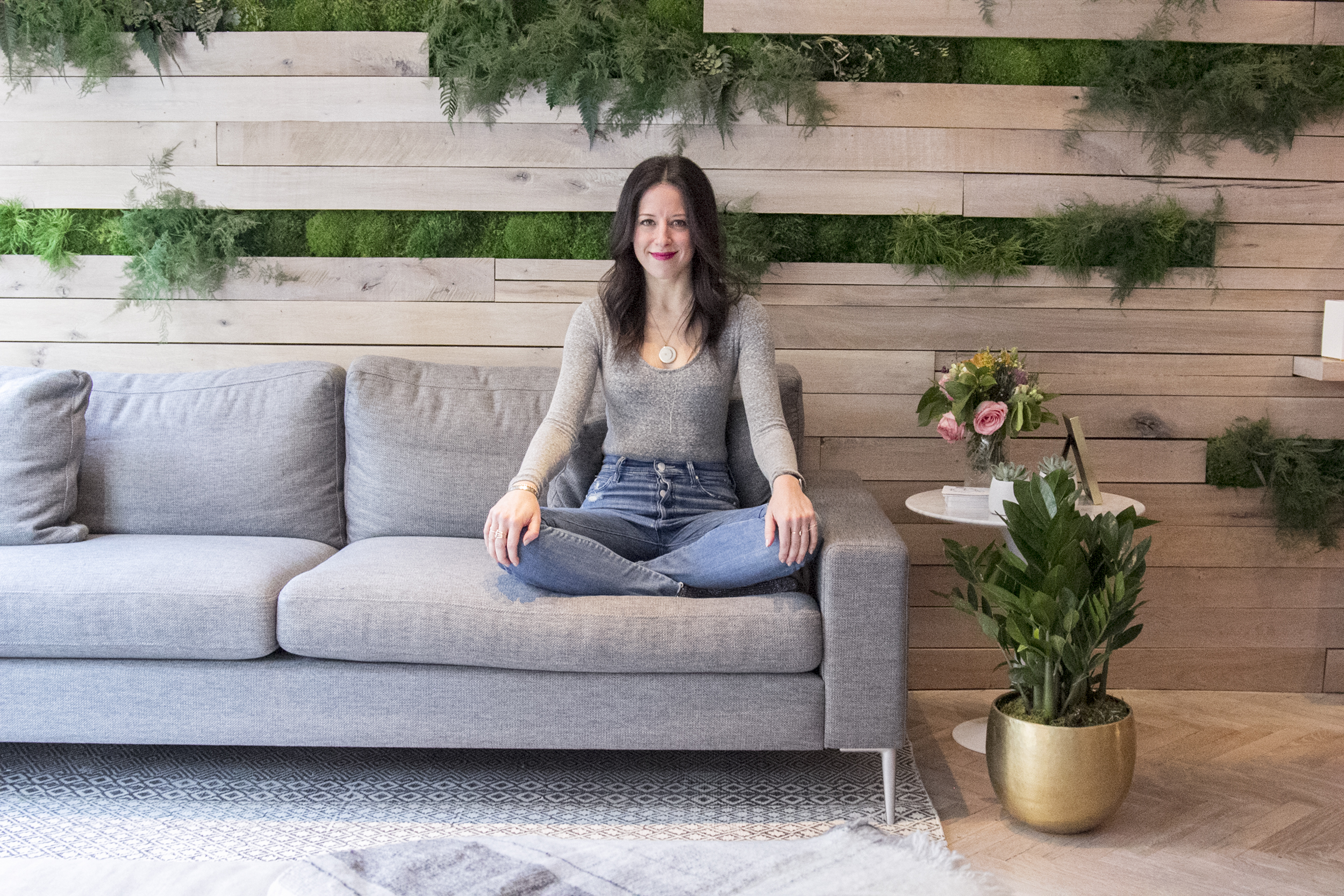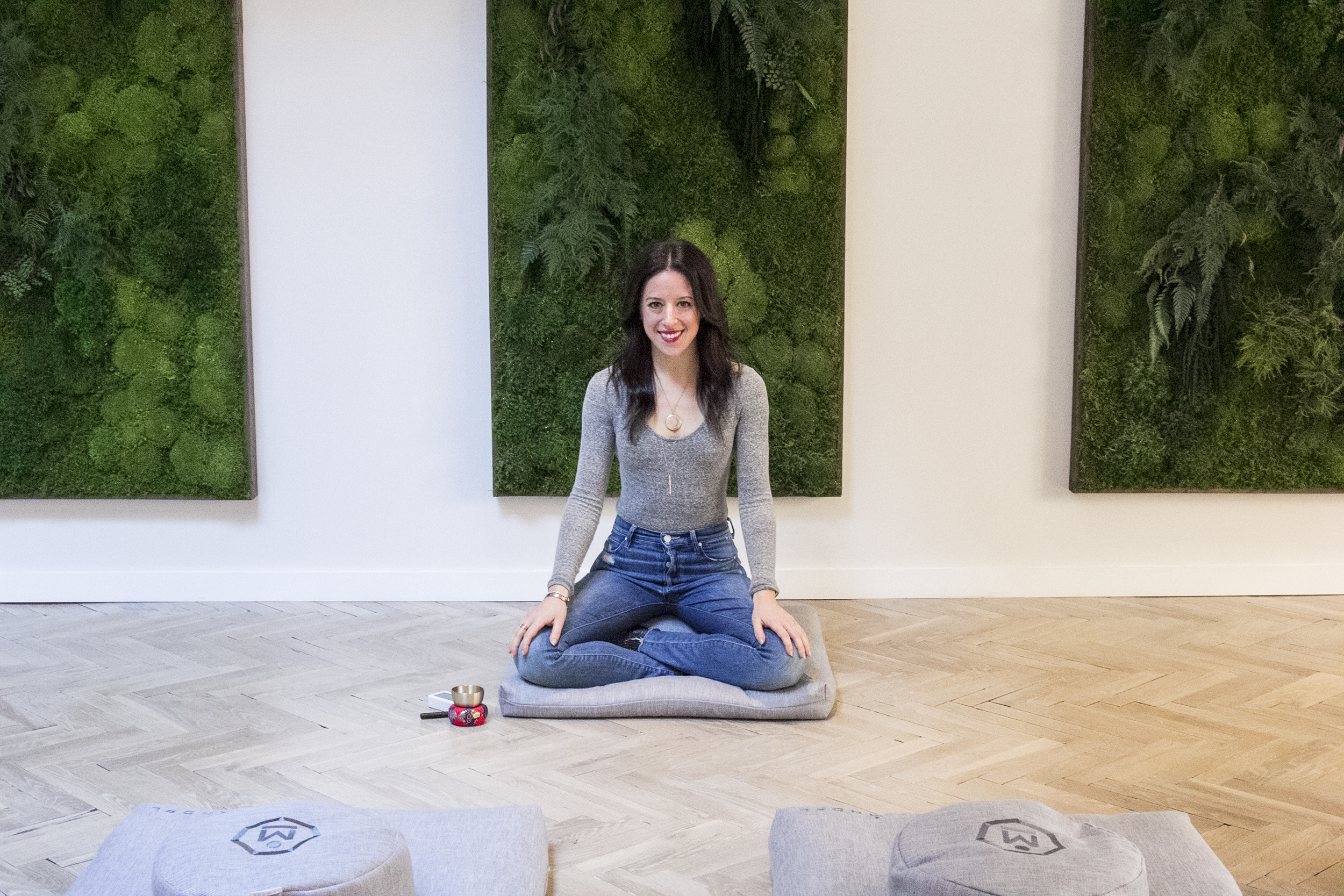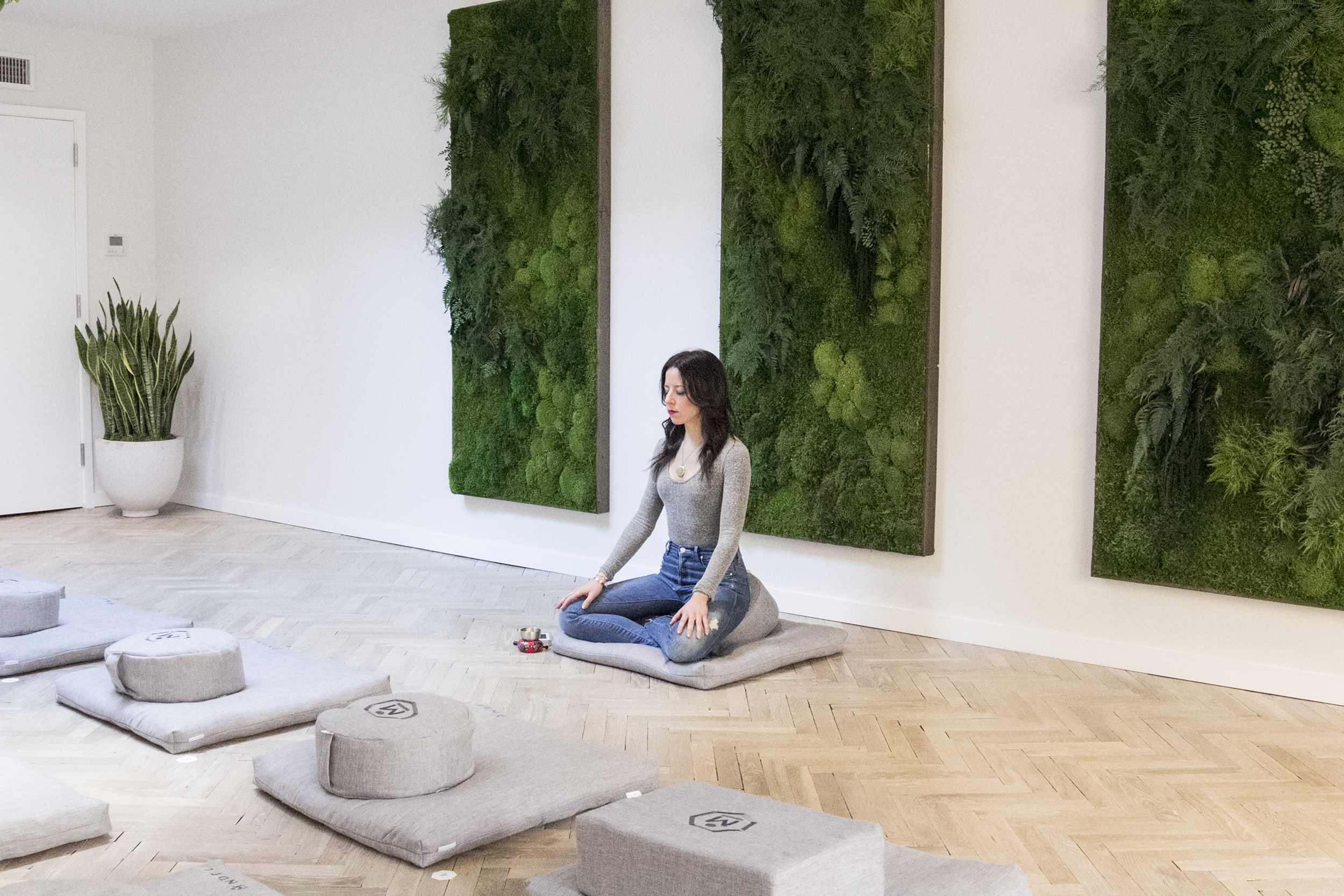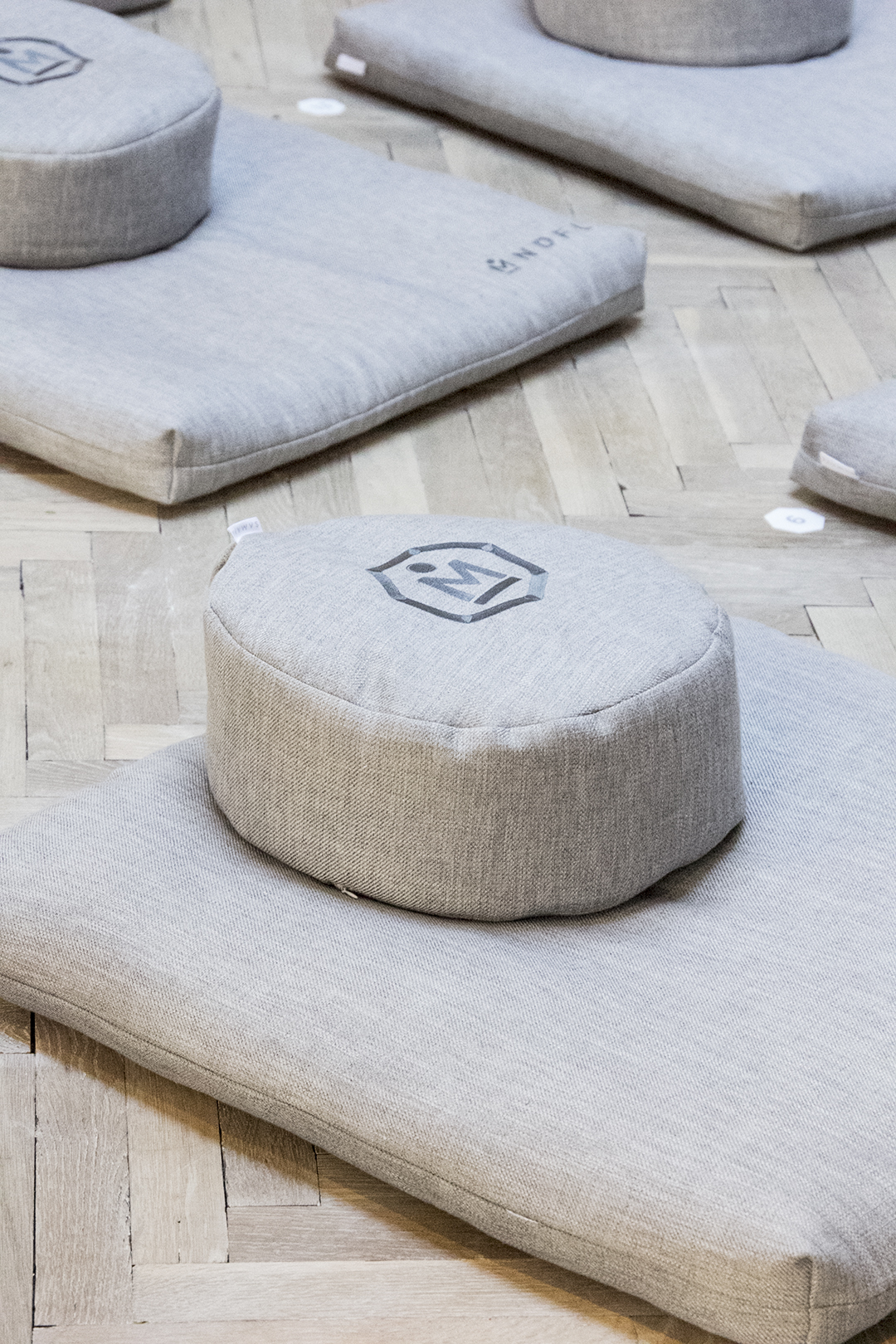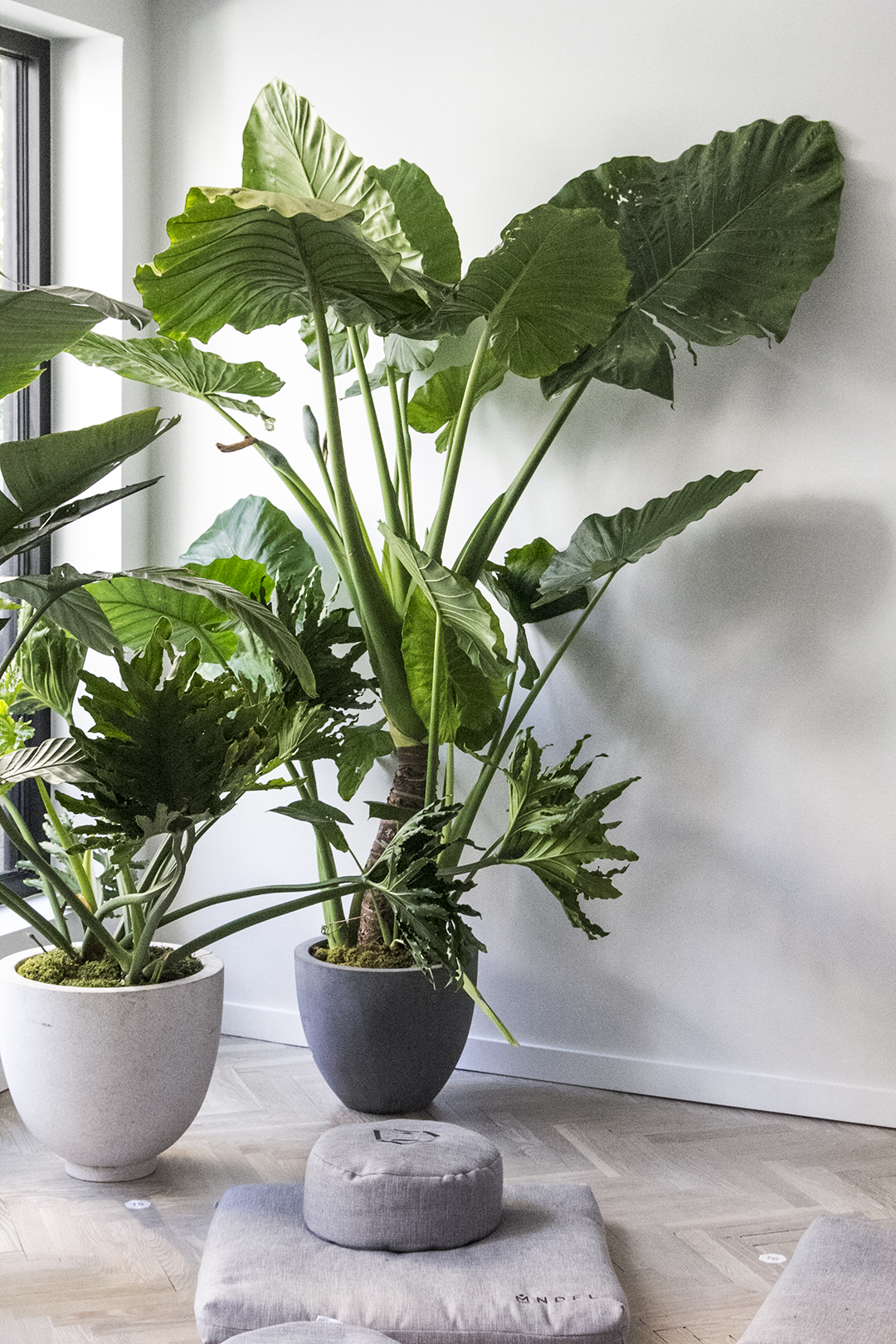I could introduce MNDFL as New York’s first fitness studio-style meditation centre, but that’s only half the story. By now you’ve probably come across it, in online on Vogue or in the pages of the New York Times but as founder Ellie Burrows will tell you, the mission behind MNDFL has nothing to do with tapping into the zeitgeist. Like many great businesses, MNDFL was born out of a personal need and is deeply rooted in Ellie’s story.
In 2013 she followed her instinct and quit her job in the film business to travel the world as a spiritual tourist. “I’ve had the distinct privilege of working for people who really really love what they do. The passion and fervour with which they commit themselves to their work was inspiring and I recognized that same passion and commitment in myself…only it was outside of the office when I was learning about wisdom traditions, studying the breath and exploring my own consciousness,” she says. “I so wished I could drum up the same amount of passion for film and trust me, I tried, but I was unable to. I remember I had a lot of fear – I was scared to pursue that which most fulfilled me. To be totally honest, I was afraid of other’s opinions and cultural pressures and using them as tools for self-judgment. It took a few years to turn down the volume of those and turn up the volume of my self-trust and confidence.”
So much of what she offers at MNDFL is about giving you the tools to tap into your inner wisdom, too. “When there’s a lot of noise around us in the form of ‘be like this,’ whether it’s someone on social media or our family or friends, we can’t always hear the still small voice inside that gets lost in that hubbub. That voice belongs to our personal compass and is always available — it’s where I draw my strength. Consider creating enough space so you can turn down that volume and listen to yourself. Meditation can help you do exactly that – it’s a very valuable tool to help you become familiar with all of who you are. You may find that the heart possesses infinite wisdom to guide you on your own personal path.”
This is Ellie’s story on self-exploration, on listening to your inner wisdom and not your ego and why meditation can help you overcome our natural tendency for negativity bias.
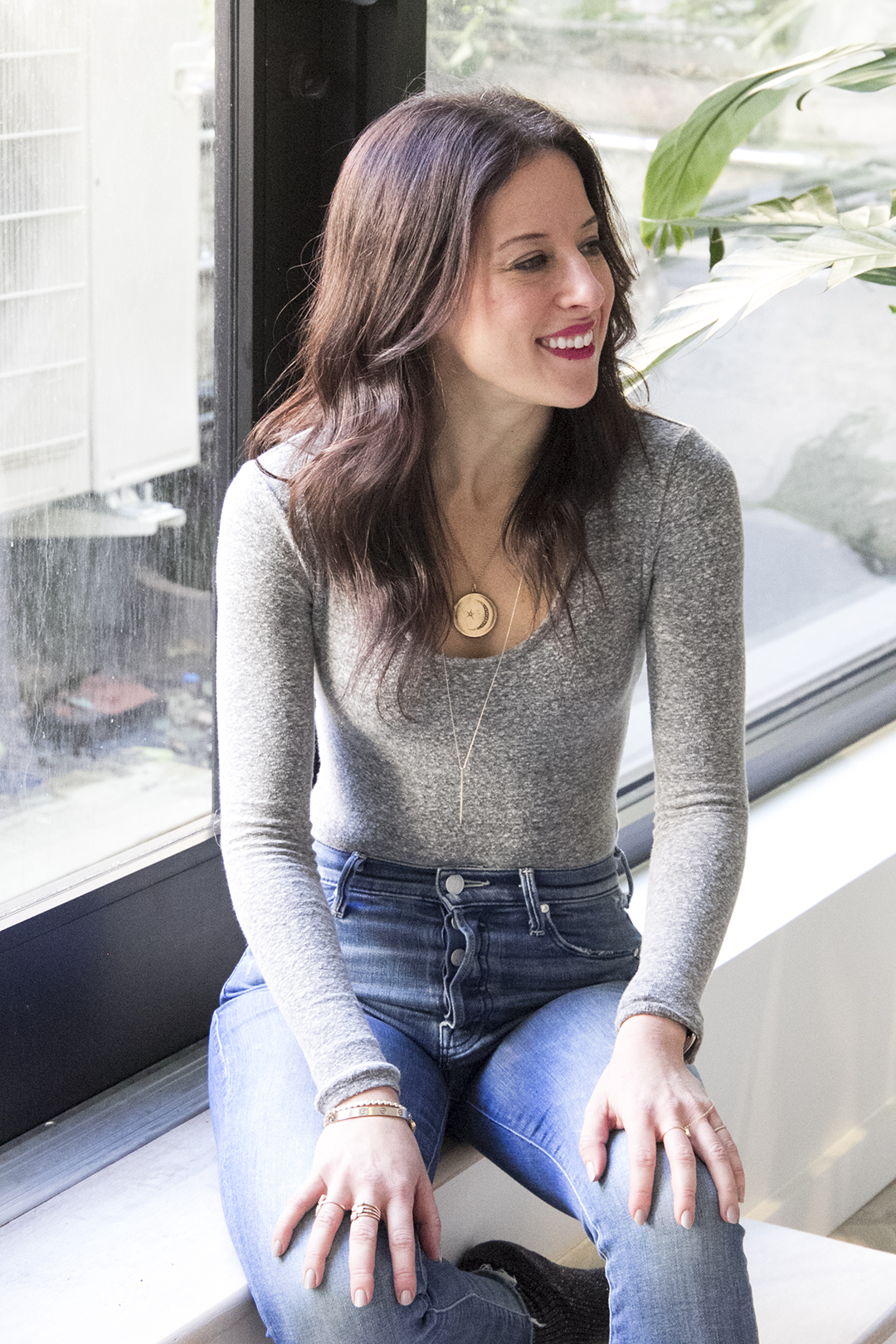 LIFE BEFORE MNDFL: I started working when I was 16 years old – I was a buyer’s assistant in a clothing store in LA. I had no idea at the time that I would end up owning my own brick and mortar business and that I would use so many of the customer service skills I cultivated as a teenager. See, I grew up in Los Angeles. Not only is it a company town, but also most of my family is the entertainment business and they are lucky enough to derive a lot of joy from their work. When I applied to college, I was on autopilot. I assumed that I would go into the family business and that same joy was awaiting me – I can now lovingly look back at my folly. I went to Northwestern University and double majored in film and art history and was planning to move back to LA. Instead, I moved to New York with my friends from college. My first job out of college was working in the mailroom at the William Morris Agency. Four weeks into that, I managed to get a job on a film agent’s desk. After a year, I left to be a Creative Executive at an independent film production company. In 2010 I took my first year off to study with a healer, which was the beginning of the end of my film career. But, just to make sure I had made my peace with the entertainment business, I went back and worked as an Executive at a film sales firm until 2013. I was on an ideal track, but it wasn’t the track for me.
LIFE BEFORE MNDFL: I started working when I was 16 years old – I was a buyer’s assistant in a clothing store in LA. I had no idea at the time that I would end up owning my own brick and mortar business and that I would use so many of the customer service skills I cultivated as a teenager. See, I grew up in Los Angeles. Not only is it a company town, but also most of my family is the entertainment business and they are lucky enough to derive a lot of joy from their work. When I applied to college, I was on autopilot. I assumed that I would go into the family business and that same joy was awaiting me – I can now lovingly look back at my folly. I went to Northwestern University and double majored in film and art history and was planning to move back to LA. Instead, I moved to New York with my friends from college. My first job out of college was working in the mailroom at the William Morris Agency. Four weeks into that, I managed to get a job on a film agent’s desk. After a year, I left to be a Creative Executive at an independent film production company. In 2010 I took my first year off to study with a healer, which was the beginning of the end of my film career. But, just to make sure I had made my peace with the entertainment business, I went back and worked as an Executive at a film sales firm until 2013. I was on an ideal track, but it wasn’t the track for me.
WHERE HER INTEREST IN MINDFULNESS CAME FROM & HER SPIRITUAL JOURNEY: I remember when I was eight years old that I used to beg my parents to take me to crystal stores, that I loved books about things like witches, played mind reading games with anyone who would indulge me and actually liked going to Hebrew school and learning about the divine. My parents weren’t particularly ‘New Age’ so this was self-directed. It makes me think of this term that was coined in the late 90s: Indigo Child. It’s an entirely unscientific categorization, but it captures the kind of kid I was. From a young age, I was interested in the stuff we can’t necessarily see and had an innate sense of my own spirituality. But, that all disappeared when puberty hit and things like boys and getting my license were suddenly front and centre. My mom was very sick when I was growing up and I ultimately lost her at 19. I was very focused on finding as much teenage normalcy as possible. It wasn’t until I was 22 and working in New York City after college that I discovered my adult spirituality. I had a little health scare, which landed me in the office of Dr. Frank Lipman, a wonderful functional medicine doctor in the city and that visit was the first day of an almost ten year journey of self-exploration and study. That same year, I was introduced to a practice called Ecstatic Breathwork and that was the first time I really ‘met’ my breath. While it has its benefits, it was neither meditation nor practical for everyday usage, so I started exploring and struggling with meditation.
THE CATALYST FOR LEAVING HER JOB TO GO TRAVELLING AND HER BIGGEST TAKEAWAYS: I couldn’t bear that voice inside of me telling me I was miserable and I should pursue my passion instead. I think they refer to this sensation as ‘a calling’ for a reason. It kept saying, “You’re not happy and you won’t be happy doing this in ten years. You love spirituality and consciousness and you should do your work there. You might not have the answers right now, but this career is not the answer. It’s a shame you are too paralyzed by fear to do what you love.” The time off really allowed me the space to reset and figure out who I was irrespective of my work and New York City culture. We can develop such a limited perspective when we are trapped in the same routine day in and day out. It’s a huge world out there and it’s important to see it and simply observe and participate in other forms of life and culture. In all that space, I was able to cultivate qualities like self-compassion and equanimity – I still am working on those. Hope I never stop.
ON STRUGGLING WITH HER MEDITATION PRACTICE WHEN SHE RETURNED TO NEW YORK: I had a cushion and an altar at home but I was struggling to sit every day. A lot of us have yoga mats at home, but we generally take them somewhere to practice instead of rolling them out and practicing in our living rooms. I didn’t have the proper accountability structure at home that I needed to really ground and build my practice. Specifically, I didn’t have an expert teacher with whom I felt a special connection and I could ask all sorts of questions of, not to mention a community who I’d be inspired to regularly practice with. Looking back – I now also see that it wasn’t the discipline that was an issue; I wasn’t practicing the right style of meditation for me. That’s why it’s so important that MNDFL is a pan-traditional studio – people can explore different styles and see what resonates most.
ON WORKING WITH LODRO RINZLER ON MNDFL: I met Lodro after I quit my job in film and was rebuilding my professional life. I was volunteering for his non-profit as a way to fill my days and we became friends. Lodro was raised in the Shambhala Buddhist tradition, started practicing at 6 and has been teaching meditation for 16 years. One day we went for tea, I was struggling with my practice, and I asked him for help. I was seeking the advice of a friend and had no idea I would leave with a business partner. It was a natural partnership from the beginning. I knew that if I wanted to open this studio, in order for it to be done with a certain level of integrity, I couldn’t have done it on my own. I’m not a meditation expert, I’m just a lover and practitioner of meditation – and I think that’s an important distinction. Lodro is our Chief Spiritual Officer or rather our Quality Control, and he oversees all of the teachers and our offerings. While we both tag team Operations, I focus on the overall experience in the space including business development, environment and design. Together we work on community building and growth strategy.
WHERE THE IDEA FROM MNDFL CAME FROM: I wanted to meditate in a space that wasn’t religious and didn’t involve a weekend-long commitment, a space I could drop into with a community that was interested in exploring meditation in a contemporary context. I loved the feeling of group meditations and I personally liked the format of boutique fitness studios—reserving a spot online or dropping in and joining class. I think we can all agree that this city is in desperate need of quiet and relaxing spaces. If I was struggling with the practice in this city, I felt others were probably struggling too. Meditation is getting a lot of attention right now and it’s a word that’s thrown around a lot. At MNDFL, we have a very specific view of what meditation is and we’ve brought together 30 expert teachers who teach traditional, time-tested techniques in an accessible manner. Every teacher is certified in a specific tradition or lineage – this means no one made anything up six weeks ago. It’s all time tested – there are reasons these practices are still around. All of our classes are thematic so you get to decide what would be most helpful for your day. For example, if you’re dealing with some strong emotions and you’re learning how to ride their waves, MNDFL Emotions could be a good class or if you’re looking to be more open-hearted in the way you approach others in your life, MNDFL Heart would be great; maybe you just want to relax, our Sound Baths are great for that. We have classes morning, noon and night to suit anyone’s schedule. 50% of the studio is donated to a community hang space and the other 50% is for practicing. Meditation is gentle, NYC isn’t, so we encourage people to arrive early and leave late and get to know their fellow community members. There’s always Rishi tea on the house and you can bring a book and stay for as long as you like.
GROUP MEDITATION VERSUS APPS: We recently launched MNDFL Video since community members who don’t live in the city, or those that do and who travel, wanted to access our teachers remotely. But if you do have access to a teacher, then it’s not an equal substitute. It’s important in the beginning to be able to ask someone about posture, technique and/or any discomfort you might be experiencing when you are initially building a practice. And when it comes to meditating in a group, think about it like singing in a choir versus singing in the shower – both are great but have very different feels. Not to mention, the feeling of “we’re all in this together.”
THE DIFFERENCE BETWEEN MINDFULNESS & MEDITATION: Mindfulness is the act of bringing your full attention to the present moment and whatever is occurring in it. It’s one of many kinds of meditation but there are also types of meditation that involve contemplation and visualization. If you want to develop mindfulness in daily life though you ought to start with mindfulness meditation.
HOW TO GET STARTED: It’s tough for everyone in the beginning. Meditation won’t turn off your mind and that’s totally normal. Be aware if your mind starts to wander, then bring yourself back to the breath or mantra. Like going to the gym, you won’t be able to lift heavy weights right away, but if you keep practicing it gets easier. Also, consistency is key. Once you learn, to really get a practice going, consistency is probably the most important component: consistent type of meditation, consistent time of day, consistent environment, consistent amount of time. Taking even 60 seconds to bring your full attention to your breath counts. We all have to start somewhere!
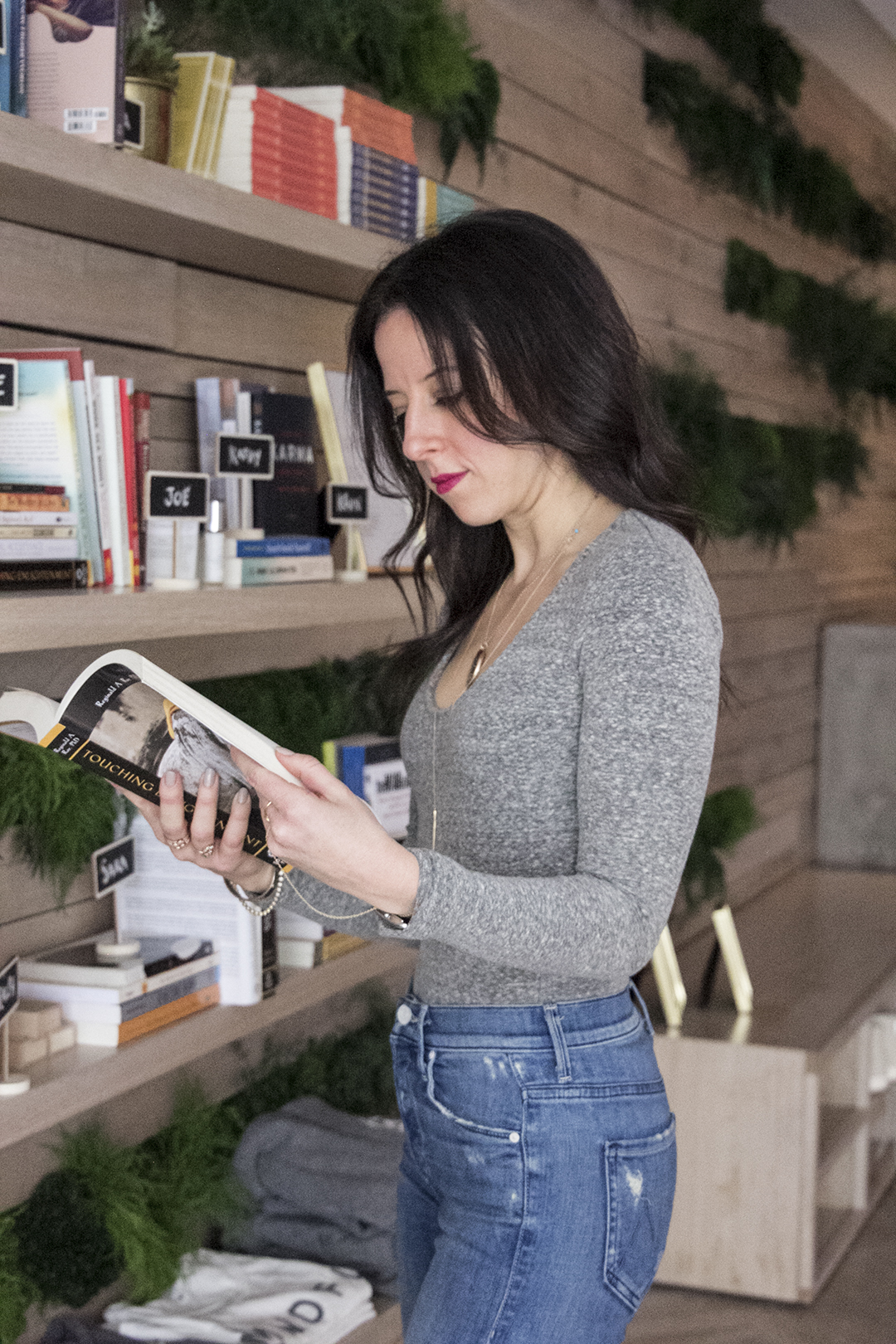 FYI – YOU CAN MEDITATE ANYWHERE: Once you have a consistent practice, you’re free to take it anywhere. Still, I get it, there’s something about being human and having this thing called an ego that can get in the way of doing all sorts of important things. The mind is designed to psyche us out on a daily basis (see: negativity bias). One of the tricks of meditating anywhere is not caring what other people think about you meditating anywhere. You’re not freaking people out if you close your eyes on the subway and have your hands gently resting in your lap — they might think you’re really skilled at sleeping upright.
FYI – YOU CAN MEDITATE ANYWHERE: Once you have a consistent practice, you’re free to take it anywhere. Still, I get it, there’s something about being human and having this thing called an ego that can get in the way of doing all sorts of important things. The mind is designed to psyche us out on a daily basis (see: negativity bias). One of the tricks of meditating anywhere is not caring what other people think about you meditating anywhere. You’re not freaking people out if you close your eyes on the subway and have your hands gently resting in your lap — they might think you’re really skilled at sleeping upright.
ON HER MEDITATION ROUTINE & OTHER HEALTHY HABITS: I meditate twice a day for 30 minutes. It’s the first thing I do after I brush my teeth and wash my face and I do it again sometime around 3 or 4pm. It’s easy to set aside the time because I know first-hand the impact it will have on my day. The style I practice provides my body with deep relaxation so I’m better able to creatively problem solve, I’m less likely to have knee-jerk reactions to triggers, and it helps me live life with a more open heart overall. I definitely feel different if I don’t practice. In a way, my body craves it, not unlike someone might crave caffeine. If I don’t meditate by late morning, I can feel a bit sluggish or out of it. And if I waited until the afternoon I’d probably need a big ole nap. I feel my best when I have a minimum of eight hours of sleep a night, exercise a minimum of four days a week and when I make good decisions when it comes to what kind of food I’m ingesting. I try to live and eat consciously and cleanly, but I like to leave room for pleasure. I also am a big fan of probiotics and Dr. Frank Lipman’s Be Well line.
WHY FEELING GOOD ISN’T NECESSARILY ABOUT FEELING HAPPY: I think people think that if they learn meditation that they are automatically going to feel happier in life. But there’s an important distinction to be made here. Meditation helps you to be more open to whom you are and subsequently feel good about all of who you are – even your shortcomings or imperfections. It’s helped me a lot with that last bit.
THE ONE MANTRA SHE LIVES BY: “The mind protects the heart from the very thing it longs for.” Our heart just wants to love and be loved and because of this, at some point we know our heart is going to be devastated – endings are a part of life. Knowing this, our mind is our greatest risk mitigator and self-safety mechanism. The more love you allow yourself to feel, the more predisposed you are to disappointment and devastation. Sure it’s scary, but the only thing scarier than that is not feeling the love at all.

